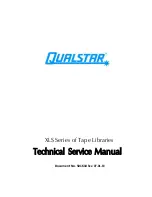
Wide Striping
Wide Striping is a function that concatenates multiple RAID groups by striping and uses many drives simultane-
ously to improve performance. This function is effective when high Random Write performance is required.
I/O accesses from the server are distributed to multiple drives by increasing the number of drives that configure
a LUN, which improves the processing performance.
Figure 38 Wide Striping
Server
ETERNUS DX
CM#0
CM#1
Wide Striping creates a WSV that can be concatenated across 2 to 64 RAID groups.
The number of RAID groups that are to be concatenated is defined when creating a WSV. The number of con-
catenated RAID groups cannot be changed after a WSV is created. To change the number of concatenated groups
or expand the group capacity, perform RAID Migration.
Other volumes (Standard, SDVs, SDPVs, or WSVs) can be created in the free area of a RAID group that is con-
catenated by Wide Striping.
WSVs cannot be created in RAID groups with the following conditions.
•
RAID groups that belong to TPPs or FTRPs
•
The RAID group that is registered as an REC Disk Buffer
•
RAID groups with different stripe size values
•
RAID groups that are configured with different types of drives
•
RAID groups that are configured with RAID6-FR
If one or more RAID groups that are configured with Advanced Format drives exist in the RAID group that is to
be concatenated by striping to create a WSV, the write performance may be reduced when accessing the cre-
ated WSVs from an OS or an application that does not support Advanced Format.
2. Basic Functions
Optimization of Volume Configurations
65
FUJITSU Storage ETERNUS DX500 S4/DX600 S4, ETERNUS DX500 S3/DX600 S3 Hybrid Storage Systems Design Guide (Basic)
Copyright 2019 FUJITSU LIMITED
P3AM-7722-25ENZ0
Summary of Contents for ETERNUS DX500 S3/DX600 S3
Page 218: ......
















































